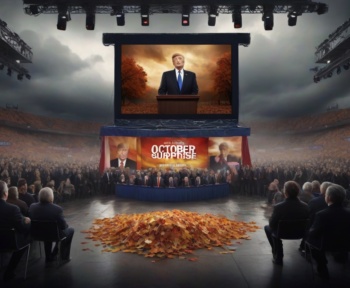In the wake of the grisly murder of Brian Thompson, CEO of UnitedHealthcare, a disturbing trend has emerged. Some segments of the populace, provoked by the alleged actions of the accused, Luigi Mangione, have begun to dangerously revere his motivations. This glorification of a heinous act forces a vital conversation about the complexities of human motivation and the dire consequences of celebrating violent behavior.
Michael Moynihan, a commentator known for his incisive analysis, has powerfully objected to the emerging trend of venerating Mangione’s alleged motives. Moynihan warns of the hazards such admiration can sow within society, fostering a culture that may normalize aggression and undermine the core values of compassion and justice. Focusing on the devastation suffered by Thompson’s family and community, Moynihan urges a rejection of any narrative that glorifies such acts, contending that it overlooks the profound personal and social trauma inflicted.
The premeditated murder of Thompson was not just a brutal act of violence but also a symbol of deeper social and ideological turmoil. Mangione, driven by what he perceived as the unchecked greed within the healthcare industry, saw his actions as a form of retribution. This perspective invites broader reflections on the societal structures that may inadvertently nurture such devastating decisions and highlights the need for a keen understanding of these dynamics to avert similar future tragedies.
The underpinnings of Mangione’s ideology are said to be influenced by radical views, including those expressed by Ted Kaczynski, also known as the Unabomber, whose manifesto criticizes the dehumanizing effects of modern technological advancements. Such ideologies resonate with individuals who feel alienated or sidelined, providing a dangerous justification for violent actions. Moynihan’s insights stress the importance of addressing the allure of these ideologies critically and constructively.
This discourse extends beyond the immediate tragedy to reflect on the broader societal parameters that incubate such violent tendencies. There is a palpable need for societal recalibration towards values that emphasize empathy and non-violent conflict resolution, as highlighted by Moynihan. By addressing grievances constructively, communities may begin to dismantle the conditions that fuel discontent.
Further, this issue beckons an examination of systemic failures, including economic disparities, media desensitization to violence, and insufficient mental health resources, which have historically contributed to cycles of violence. The ideologies driving such acts of violence are not tackled merely through condemnation but require a comprehensive understanding and addressing of the deep-seated societal grievances they highlight— a point underscored by sociologist Dr. Evelyn Newman, who studies radicalization patterns. Newman elaborates on the potent appeal of ideologies that vow to amend perceived injustices, explaining how they can eclipse moral barriers and trigger violent outbursts.
In combating the misguided admiration for violent figures like Mangione, there is a collective responsibility that must be embraced. Moynihan’s call is a reminder of the societal obligation to advocate for narratives that respect life and uphold peace. Community and educational leaders are pivotal in this respect, promoting dialogues centered around empathy and peaceful problem-solving.
The role of media and cultural influencers is also significant in shaping these dialogues. They are tasked with responsibly managing the narratives they propagate, ensuring they contribute positively to societal values and eschew sensationalism. Through these concerted efforts, the discourse can be steered towards one that prioritizes human dignity and collective well-being.
Entire communities must reflect on and adapt to changes that can dismantle the structures enabling the glorification of violence. Emphasizing a thorough understanding of the complex factors leading to such tragedies, leaders like Moynihan advocate for systemic reforms that address these issues at their roots.
Ultimately, addressing the dark side of admiration represents a crucial step towards restoring societal values centered on respect for life and justice. In Moynihan’s perspective, the goal is a society where violence is unequivocally rejected and every individual’s dignity is defended. Through determined and united efforts, it is possible to foster a societal atmosphere that not only detests violence but also cherishes the sanctity of life, paving the way towards lasting peace and respect for all.




